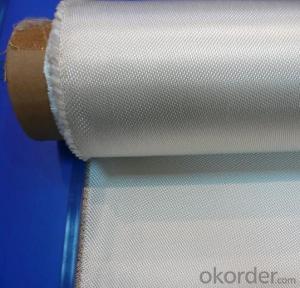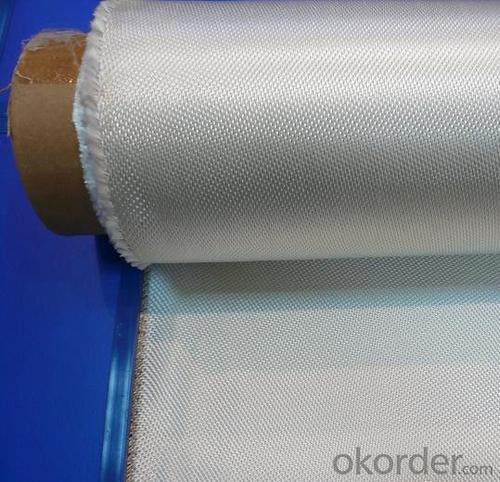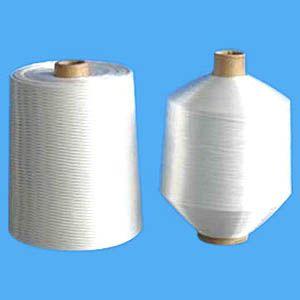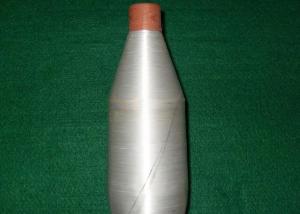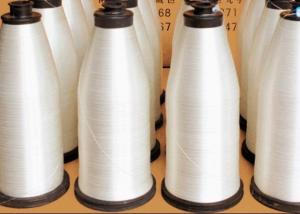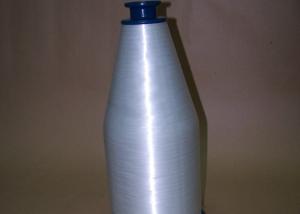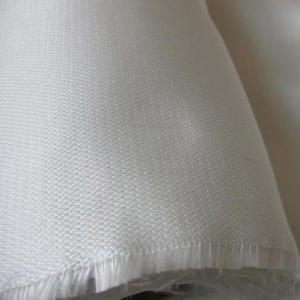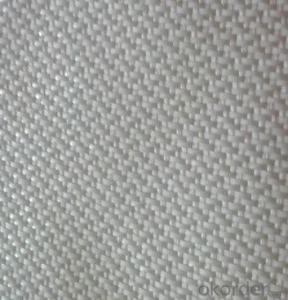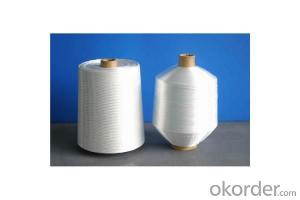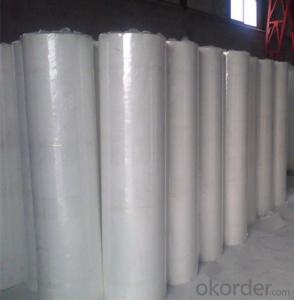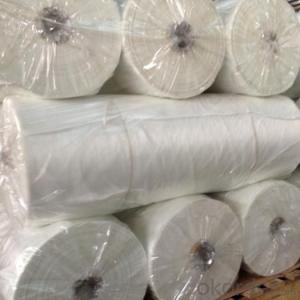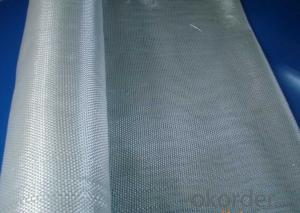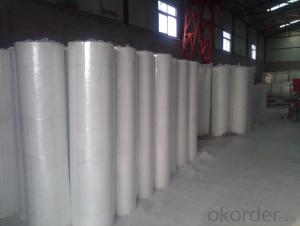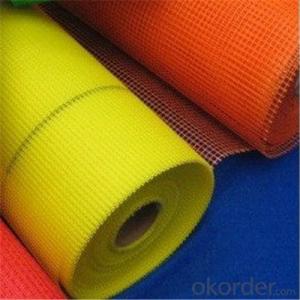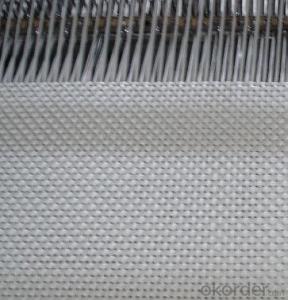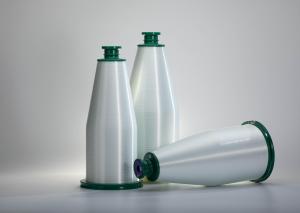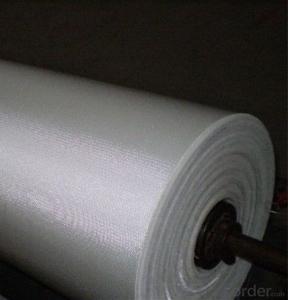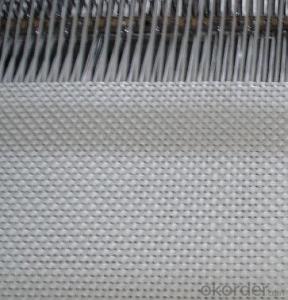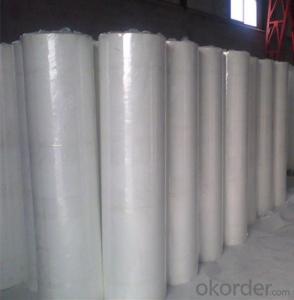Fiberglass Yarn Reinforced Fiberglass Fabric for Machinery and Metallurgy
- Loading Port:
- Shanghai
- Payment Terms:
- TT OR LC
- Min Order Qty:
- 500 m²
- Supply Capability:
- 50000 m²/month
OKorder Service Pledge
OKorder Financial Service
You Might Also Like
Fiberglass Fabric for Machinery and Metallurgy
Fiberglass Fabric Introduction:
Fiberglass fabric is weaved by high quality fiberglass,as a kind of engineering material,which is
many excellent characteristics:
flame-resisting,corrosion resistant,high strength,heat resistance.stable structure,good chemical resistance,durability.
Fiberglass Fabric Features:
Warp and weft yarns are parallel arrangement as flat situation, with uniform tension;
Fiber is aligned with large consistency, stable and easy operation;
Good moldability, fast and complete wet out in resins, resulting in high productivity;
Good transparency and high strength of composite products.
Fiberglass Fabric Specification:
mark | Fiber consistency(ends/ cm) |
Area weight (g/ m2) |
Thick-ness (mm) |
Width (cm) |
Length (mm) | Breaking strength(N)≥ |
weave | |||
Warp direction | Weft direction | Warp direction | Weft direction | |||||||
EW200 | 16 | 12 | 200±20 | 0.2 | 90-130 | 300-1200 | 980 | 980 | ||
EW210 | 16 | 12 | 200±20 | 0.21 | 90-130 | 300-1200 | 1080 | 1080 | Twill weave | |
Plain weave | ||||||||||
EWR360 | 3.2 | 1.8 | 354±18 | 0.35 | 50-300 | 100 | 2000 | 2000 | ||
EW280 | 16 | 10 | 280±28 | 0.26 | 90-130 | 300-1200 | 1800 | 1800 | ||
EW300 | 14 | 10 | 320±32 | 0.3 | 90-130 | 300-1200 | 1500 | 1500 | ||
EW430 | 20 | 12 | 420±42 | 0.43 | 90-130 | 300-1200 | 2000 | 2000 | Broken twill | |
EWR136 | 10 | 10 | 136±13 | 0.136 | 100 | 200 | 850 | 850 |
Plain weave | |
EWR200 | 8 | 7 | 200±20 | 0.21 | 100 | 200 | 1200 | 1200 | ||
EWR400 | 3.6 | 3.2 | 400±30 | 0.4 | 100 | 50-100 | 2500 | 2500 | ||
EWR600 | 2.6 | 2.5 | 600±50 | 0.6 | 100 | 40KG | 4000 | 4000 | ||
EWR580 | 2.5 | 2.3 | 576±29 | 0.58 | 100 | 40KG | 3850 | 3850 | ||
EWR800 | 1.8 | 1.8 | 800±60 | 0.8 | 100 | 40KG | 4600 | 4600 | ||
Product Show
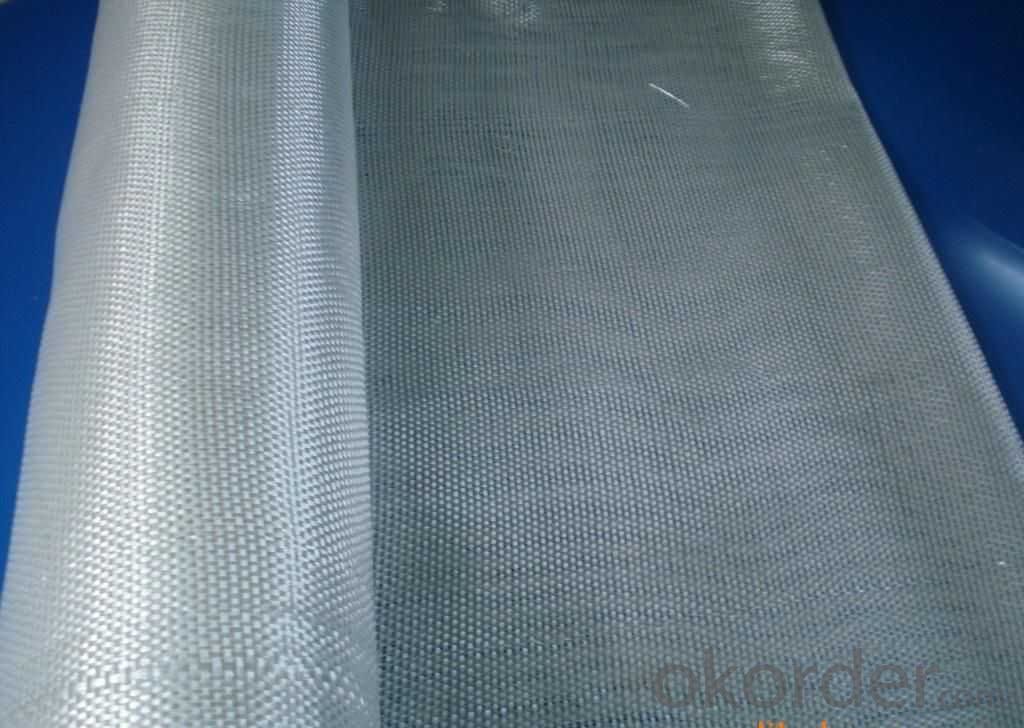
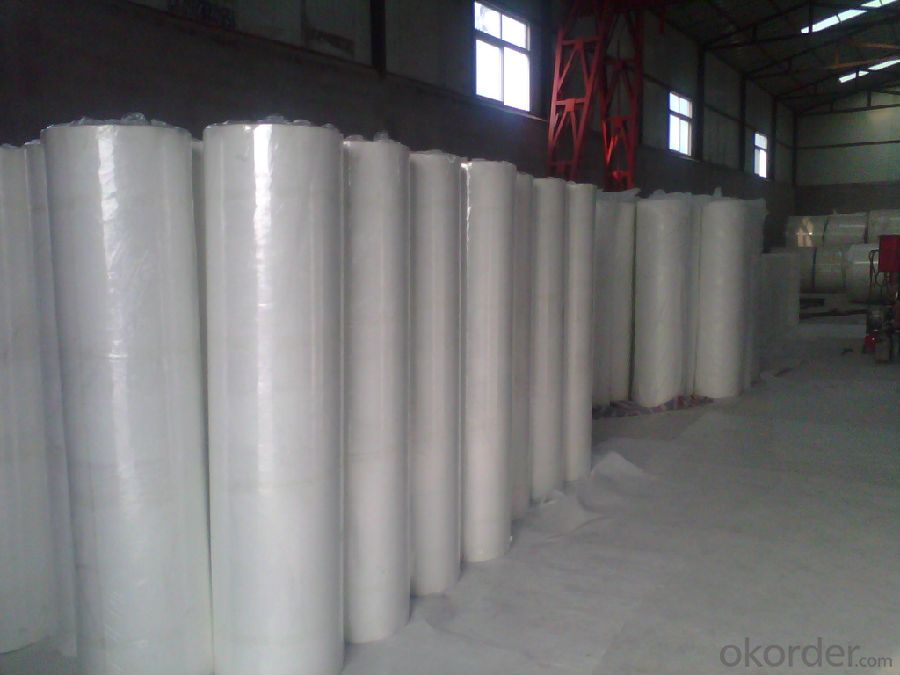
Fiberglass Fabric Usage:
E-glass woven roving is a schistose double faces reinforcement fabric that is weaved into from roving in directly.
E-glass fiber fabric (thin fabrics with thickness from 0.025 to 0.09mm) is suitable for electrical isolation mica product, wax cloth as the reinforcement materials.
E-glass woven roving applys to all kinds of polyester reinforcement system, (such as unsaturated polyester resin, vinylite,epoxy resin and phenolic resin.
E-glass woven roving is a high performance reinforcement material. It is widely used in hand lay-up and machinery processing products, (such as vessel, container, airplane and vehicle component, furniture, athletic facilities and other industry.
FAQ
1.Package of Fiberglass Fabric?
Fiberglass fabric is wound on a paper tube with inner diameters of 50. 8, 76 or 152mm. Each roll is wrapped in a plastic bag, then to be packed in a carton box. The rolls are to be horizontally placed.
Width (cm): 90, 100, 127
Length (m): 100, 200, 300, 400
2.Storage of Fiberglass Fabric?
Store rolls in a cool, dry location
Protect rolls from weather and other damage.
3.If sample available if needed?
We aim to offer our customer best Products&Service,samples are allowed if necessary.
- Q: Can fiberglass yarn be used for aerospace composites?
- Aerospace composites can indeed utilize fiberglass yarn. This versatile material finds widespread use across various industries, including aerospace, as it effectively reinforces composite materials. Its exceptional tensile strength, stiffness, and resistance to chemicals render it ideal for high-performance applications like aerospace composites. Fiberglass yarn is commonly employed as a reinforcement, taking the form of woven rovings, fabrics, or tapes. These are subsequently impregnated with resin to produce composite parts that can be utilized in aerospace applications such as aircraft structures, interior components, and even spacecraft. The lightweight nature of fiberglass yarn further enhances its suitability for aerospace composites, as it aids in reducing overall aircraft weight without compromising structural integrity. Consequently, fiberglass yarn presents a viable choice for aerospace composites.
- Q: Is fiberglass yarn resistant to extreme weather conditions?
- Indeed, extreme weather conditions are generally resisted by fiberglass yarn. Fiberglass, an enduring and weather-resistant substance, is capable of enduring a vast array of weather conditions, encompassing heat, cold, rainfall, and UV radiation. It is renowned for its exceptional thermal and chemical durability, as well as its capacity to sustain its strength and integrity in challenging surroundings. Fiberglass yarn often finds utility in outdoor domains, including the construction, marine, and automotive industries, wherein it confronts extreme weather conditions. Nonetheless, it is crucial to acknowledge that the degree of resistance can fluctuate contingent upon the specific composition and manufacturing procedure of the fiberglass yarn.
- Q: What are the electrical conductivity properties of fiberglass yarn?
- Fiberglass yarn generally exhibits low electrical conductivity properties. This is because fiberglass is made of glass fibers which are non-metallic and do not conduct electricity easily. The non-conductive nature of fiberglass makes it an ideal material for various applications where electrical insulation is required. However, it is important to note that the electrical conductivity of fiberglass yarn can vary depending on the specific composition and structure of the yarn. Some fiberglass yarns may contain conductive additives or coatings that enhance their electrical conductivity for specific purposes.
- Q: What are the benefits of using fiberglass yarn?
- There are several benefits of using fiberglass yarn, making it a popular choice in various industries. Firstly, fiberglass yarn is known for its high strength and durability. It is resistant to chemicals, heat, and moisture, making it suitable for use in challenging environments. Its strength-to-weight ratio is also excellent, meaning that it can provide structural reinforcement without adding excessive weight to the product. Secondly, fiberglass yarn has excellent electrical insulation properties. It does not conduct electricity, making it an ideal choice for electrical applications where insulation is crucial. Its non-magnetic nature also makes it suitable for use in environments where electromagnetic interference (EMI) needs to be minimized. Furthermore, fiberglass yarn is highly versatile and can be used in a wide range of applications. It can be woven into fabrics, used as reinforcement in composites, or coated with various materials to enhance its properties. This versatility allows for its use in industries such as construction, aerospace, automotive, and marine. Another benefit of using fiberglass yarn is its fire resistance. It has a high melting point and does not propagate flames, making it a suitable choice for fire-retardant applications. This property is particularly important in industries where fire safety is crucial, such as building construction or electrical insulation. Additionally, fiberglass yarn is known for its low thermal expansion. This means that it retains its shape and dimensions even when exposed to extreme temperature changes. This property is essential in applications where dimensional stability is required, such as in the manufacturing of precision components. Lastly, fiberglass yarn is cost-effective compared to other materials with similar properties, such as carbon fiber. It offers a good balance between performance and price, making it an attractive option for various industries. In conclusion, the benefits of using fiberglass yarn include its high strength and durability, excellent electrical insulation properties, versatility, fire resistance, low thermal expansion, and cost-effectiveness. These advantages make it a preferred material choice in numerous applications across different industries.
- Q: Does fiberglass yarn shrink when exposed to high temperatures?
- Indeed, when fiberglass yarn is confronted with high temperatures, it undergoes shrinkage. The process of creating fiberglass involves melting glass and subsequently transforming it into delicate fibers, which are then interwoven to form yarn. Once exposed to heat, the glass fibers within the yarn contract and diminish in size. Consequently, the yarn's length and diameter may experience a reduction. Therefore, one must take into account this phenomenon of shrinkage when utilizing fiberglass yarn in situations where elevated temperatures are anticipated, as it could potentially affect the material's performance and dimensional stability.
- Q: Can fiberglass yarn be used for insulation purposes?
- Yes, fiberglass yarn can be used for insulation purposes. It is commonly used as a thermal insulator due to its low thermal conductivity and ability to trap air, making it an effective material for insulating buildings, pipes, and appliances.
- Q: Is fiberglass yarn resistant to moisture or humidity?
- Yes, fiberglass yarn is resistant to moisture and humidity. Fiberglass is a synthetic material made from fine fibers of glass, which are then spun into yarn. One of the key properties of fiberglass is its resistance to moisture and humidity. Unlike natural fibers such as cotton or wool, fiberglass does not absorb moisture. This means that it will not become damp or retain water when exposed to humid conditions. Additionally, fiberglass is also resistant to mold and mildew growth, which are commonly associated with moisture and humidity. Therefore, fiberglass yarn is an excellent choice for applications where resistance to moisture and humidity is required, such as in the manufacturing of outdoor fabrics, insulation materials, and composite materials.
- Q: Is fiberglass yarn suitable for automotive applications?
- Yes, fiberglass yarn is suitable for automotive applications. It is commonly used in the automotive industry for its high strength, heat resistance, and durability. It is used in various automotive components like insulation, reinforcements, and composites, providing improved performance and safety.
- Q: Can fiberglass yarn be used for making carpets?
- Indeed, carpets can be manufactured using fiberglass yarn. Renowned for its exceptional robustness and endurance, fiberglass yarn is ideal for demanding purposes like heavy-duty carpets. Not only does it withstand deterioration and discoloration, but it also exhibits remarkable resistance against stains. Moreover, fiberglass yarn boasts exceptional dimensional stability, guaranteeing carpets that retain their form and structure for an extended period, thus ensuring their longevity.
- Q: How does fiberglass yarn perform in electrical insulation?
- The excellent performance of fiberglass yarn in electrical insulation has made it widely used in this application. Its unique properties make it an ideal option for insulating electrical components and wiring. To begin with, fiberglass yarn possesses a high dielectric strength, enabling it to withstand high voltage without breaking down. This ensures that the electrical insulation provided by fiberglass yarn remains intact even under extreme electrical stress. Furthermore, fiberglass yarn demonstrates exceptional thermal resistance, allowing it to endure high temperatures without compromising its insulating properties. This is crucial in electrical insulation as it guarantees that the insulation material does not deteriorate or melt when exposed to heat generated by electrical currents. Moreover, fiberglass yarn exhibits low moisture absorption characteristics, which is essential in electrical insulation to prevent any infiltration of moisture that could jeopardize the insulation and result in electrical failures or short circuits. Additionally, fiberglass yarn is resistant to chemicals, oils, and most solvents, enhancing its durability and suitability for various electrical applications. It can endure exposure to different environments, safeguarding electrical components against potential damage caused by chemical exposure. Finally, fiberglass yarn is lightweight and flexible, making it easy to handle and install in electrical insulation applications. Its flexibility allows it to conform to different shapes and complexities, ensuring a secure and dependable insulation. In conclusion, fiberglass yarn excels in electrical insulation due to its high dielectric strength, thermal resistance, low moisture absorption, chemical resistance, and flexibility. These properties make it an excellent choice for insulating electrical components and wiring, guaranteeing the safety and dependability of electrical systems.
Send your message to us
Fiberglass Yarn Reinforced Fiberglass Fabric for Machinery and Metallurgy
- Loading Port:
- Shanghai
- Payment Terms:
- TT OR LC
- Min Order Qty:
- 500 m²
- Supply Capability:
- 50000 m²/month
OKorder Service Pledge
OKorder Financial Service
Similar products
Hot products
Hot Searches
